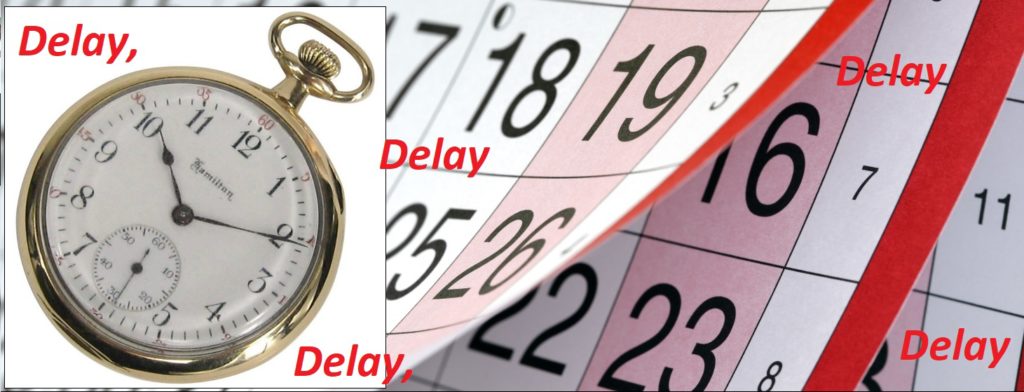You always do the right thing when making decisions, right? You are always fair minded and generous to people who are less powerful and in a vulnerable position, right? People are generally decent, right? Why is it, then, that insurance companies employing otherwise reasonable, fair-minded people do not give fair-minded value to the claims of innocent victims? This article reveals five reasons why systematic undervaluing of insurance cases occurs.
- A MONEY MAKING ENTERPRISE
An overlooked motivating factor for low payouts on injury cases is our capitalist system for the insurance company. Corporations are entities, even referred to at times as “persons.” Insurance company corporations have one goal above all others: to make the maximum amount of money for their owners. Their owners are (typically) stock owners who pay money for stock shares and expect more money in return by way of dividends or increased stock value. From the executive desk of the president down to common employees, this money motivating factor colors all decisions of businesses. Insurance companies are no exception.
Insurance companies make money by charging their customers premiums. They also make money from investing the money that is given to them and making dividends or profits on that money. Insurers maximize profit by minimizing their expenses. Paying money for insurance claims is a large expense of an insurance company. The less that is paid out, the more money for their owners (the stockholders).
Insurance companies will deny paying more in payouts when the investment market is expected to do a down turn versus when money is to be made. However, in our experience, insurance companies do pay out differently for tax reasons, market force reasons, and investment timing. One way or the other, capitalism, money, and timing influence the fair value by which insurers assess to your case.

- INSURER DELAY MEANS INSURER MONEY
You may notice the larger the insurance claim, the more time, procrastination, and delay the victim will experience. This is no coincidence. Remember, insurance companies do not handle just your claim. Insurers handle tens or thousands of claims at any one time. With any large population, emergencies for some claimants will occur. Financial troubles will crop up for some claimants. Some claimants merely drop out because of exhaustion. This means that the longer an insurance company can delay a claim, the more people will drop out for various reasons that are personal to each person.
Even claimants that do not drop out, may take less than the full value of their case for similar personal reasons. Some people merely get into a situation where they are desperate for money and will take whatever is offered. The longer the delay, the more likely this is.
We talked in reason number one (above) about how insurers make money from investments. Remember, the longer the delay in paying you, the more time the insurance company has to invest the money that the insurer would have otherwise given you. Simply put, delay pays.

- THE DIFFUSION OF RESPONSIBILITY
We all feel guilt and negative emotions over decisions which harm others. Nobody wants to be the “bad guy.” We all like to point to the other person and say they are the “bad guy.” Others will say they simply were one piece in the cog of a big machine and did not make the final decision. This diffusion of responsibility is the genesis of many injustices perpetrated by insurance companies.
Remember, it is often the case that insurance claims are handled by many people. If not just one person makes a bad decision; it is a group decision. Guilt is diffused and can be blamed on others. The executive office can order managers who can then blame the executives. The managers can order employees who can then blame the managers. Employees are large in number and can blame each other. One way or the other, if no one person is at fault, no one person bears all the guilt. This diffusion of responsibility is one way in which innocent victims with the insurance claims suffer further injustice through an unfair evaluation or a complete failure to pay a rightful claim.
Natural Selection in favor of Unfair Insurance Employees
Please also note there is a natural selection issue with respect to insurance companies. Each employee will have employment responsibilities and guidelines. It is often the case that an employee gets better evaluations and a superior work relationship when the employee makes more money for their corporation.
Employees that lose money for their company tend to be fired. In an insurance situation, this means the less money is paid out to otherwise rightful claims; the more money the insurance company makes; the better the employee is viewed. I have personally seen this attitude in my insurance adjuster acquaintances. These are people that are otherwise good, well meaning, and have the victim in mind. They simply get overwhelmed by the money and the desire to please their bosses.
- A DIFFERENCE IN VALUE OPINIONS
We all value our own family, our own friends, our own possessions and pets more than other people value them. Each of us has a personal affinity for the things closest to us. This creates a natural bias when those things are lost. The death of your own pet is more important to you than the death of a stranger’s pet.
So too is it true with injury accident claims. Your pain, your suffering, the accident’s effect on your life is more meaningful and valuable to you than a stranger. This results in claims adjusters at insurance companies who simply don’t share your value for your suffering as a victim. Therefore, insurance offers are made valuing an average payout rather than your particular experience.
Computers Affect Accident Claim Value
Computers are also the enemy of value! Many insurance companies have specific proprietary programs, such as Colossus, originally made for Insurance. These computer programs place values on many claims. Like all computer programs, they make mistakes and are imperfect. Insurance claim computers may simply fail to take into account all your particular circumstances. Remember, these computers were built and paid for to save insurance companies money. Their primary goal was not justice for an accident victim.

- TOO FEW VALUE HEROES
Full value of case is often reached only after attorneys are hired, litigation is handled, a jury trial ensues, and a decision is given. Sometimes there is even an appeal! With so few people taking the full journey, accident claim values overall go down. This means even the few people that do go the distance see higher costs and less money in the end because they must make the added effort to “blaze the trail.”
It is understandable to identify with the people who take the money for less than full value. We all have stress in our lives. Few are highly experienced at insurance injury claims. We all want the pride of handling a claim ourselves. Unfortunately, this also tends to result in lower values for the claim. So many drop outs create a bias on the part of those who pay the claims (the insurance companies and lawyers). Insurers get accustomed to their own victories. The failure of large numbers of people forcing full accident claim values creates an average value payout that is less than reasonable.
I hope these five reasons have informed you. Others exist. None of them are equally important. However, remember that your decisions will also affect the justice that others will receive in the future. Good luck!



